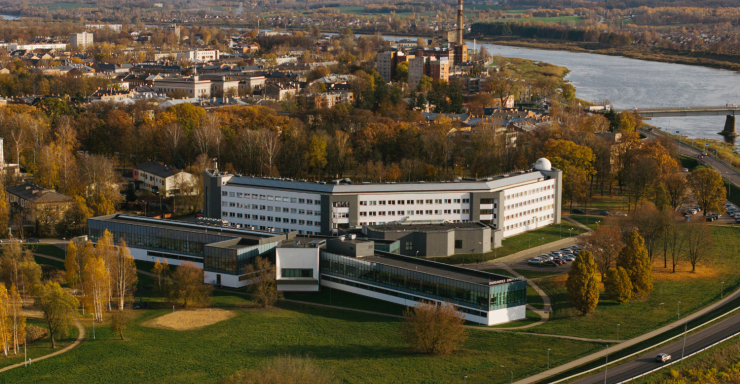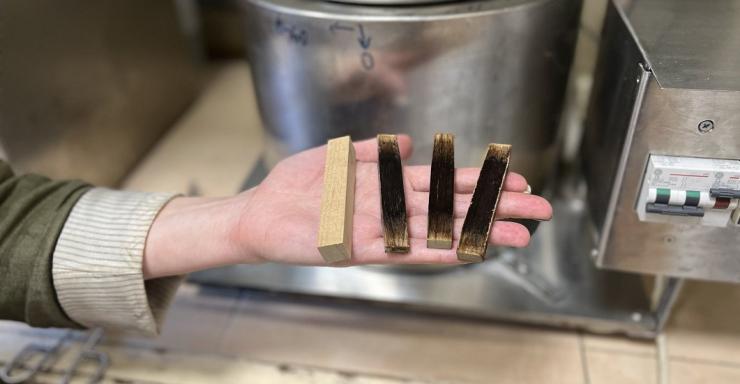Applications for the Latvian Council of Science's open competition for fundamental and applied research projects this year can be submitted until May 7th. This year, the competition has a funding pool of 17.7 million euros.
Fundamental and applied research projects are funded to ensure the creation of new knowledge and its practical application. Fundamental research focuses on the development of new theories, concepts, and methods, while applied research ensures the transfer of scientific results into practical solutions that can be used in industry, the economy, and other areas.
The goal of the competition is to promote the development of science in Latvia by providing funding for new research that fosters knowledge creation, international collaboration, and the development of innovative solutions. High-quality research projects can be submitted by Latvian scientific institutions.

Scientific institutions registered in the Register of Scientific Institutions and meeting the definition of a research organization can apply for the competition. The project submission deadline is May 7, 2025.
Since 2018 The Latvian Council of Science has been organizing the competition for fundamental and applied research projects, thus providing scientists with the opportunity to carry out their research. Competition results:
- In the first competition announced in 2018, 397 project applications were received. Funding was granted to 61 projects, with a total of 17.8 million euros allocated.
- In the summer of 2018, the Latvian Council of Science announced the second competition. A total of 328 project applications were received. 41 projects were funded with 8.5 million euros.
- In 2019, the available funding for the competition was 9.5 million euros, and 47 projects were funded.
- In January 2020, the fourth competition was announced. 397 project applications were submitted, and 42 projects were funded with a total of 12.8 million euros. For example, one of these projects was conducted by researchers from the Faculty of Medicine of the University of Latvia. They were investigating the association between glucose variability, gut disturbances, and the progression of diabetic nephropathy in type 1 diabetes patients, as reported by Labs of Latvia.
- In September 2020, the Latvian Council of Science announced the first open competition for individual research projects in the field of fundamental and applied research. 107 projects were funded with 10.74 million euros, as reported by Labs of Latvia. One of these projects was a new human organoid model for studying the role of the peripheral nervous system in the development of pancreatic cancer. This model was being developed at the Faculty of Medicine at the University of Latvia, as noted by Labs of Latvia.
- In the 2021 open competition, 579 project applications were received. The total state budget funding for the competition was 23.8 million euros, and 76 projects were funded, as reported by Labs of Latvia.
- In the 2022 competition, the highest number of applications was received—600 submissions. The available funding of 12.9 million euros was distributed among 43 projects, as noted by Labs of Latvia. Following the approval of the 2023 budget, the government allocated an additional 4.5 million euros in state budget funding for the implementation of the 2022 fundamental and applied research projects, as reported by Labs of Latvia. The Latvian Council of Science stated that this additional funding would make it possible to take a significant step toward ensuring that at least 30% of the projects evaluated above the quality threshold are funded each year. This would allow a much larger number of the most talented Latvian scientists to receive support for the implementation of the most promising ideas.
- In the 2023 fundamental and applied research project competition, 583 project applications were received. Funding was awarded to the 57 highest-rated projects, as reported by Labs of Latvia. A total of 17.1 million euros was allocated for their implementation. The available funding and the large number of project applications created the highest competition in the history of the competition, with the lowest success rate of 9.9%.
- In the 2024 fundamental and applied research project competition, funding was granted to 91 projects, as reported by Labs of Latvia. The total funding for these projects amounted to 27.3 million euros. A total of 596 submissions from 30 scientific institutions were evaluated in the competition.
For new knowledge and technologies, The fundamental and applied research program is a science funding program aimed at scientific excellence, funded by the Ministry of Education and Science. Its goal is to create new knowledge and technological insights across all scientific fields, supporting the best ideas of Latvian scientists and ensuring the balanced development of all scientific disciplines. Research topics, goals, and objectives are formulated by the scientists themselves.
Funding for projects is allocated based on the evaluation of independent foreign scientific experts—only the highest-rated projects receive funding. The implementation of fundamental and applied research projects stimulates economic growth in Latvia, addresses various important issues for Latvian society, and lays the foundation for new research directions in Latvian science.


